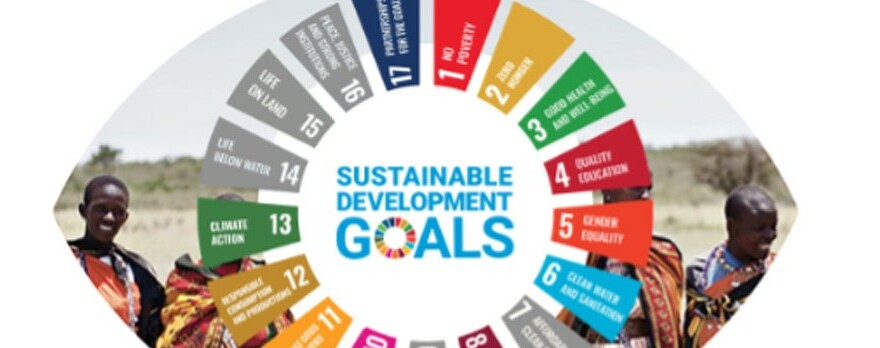The United Nations Resident Coordinator in South Sudan is urging the government to intensify its efforts in achieving the Sustainable Development Goals (SDGs) by 2030, aimed at enhancing the well-being of its citizens.
Anita Kiki, speaking during the launch of the Voluntary National Review (VNR) on SDGs at the Pyramid Hotel in Juba on Thursday, emphasized the significance of the VNR as an opportunity to assess weaknesses and make further improvements. She stressed the importance of active participation from stakeholders and development partners, including civil society, women, and UN agencies, to support the government in implementing the SDGs.
Kiki highlighted the role of the VNR in pinpointing areas for enhancement and shedding light on the challenges ahead for the nation, urging all stakeholders to commit to the process.
She commended the government of South Sudan, particularly the Ministry of Finance and Planning, for leading the VNR process, which demonstrates the government’s dedication to the SDGs. “This illustrates your commitment to the SDGs and underscores the government’s aspiration to build a prosperous and inclusive future for all South Sudanese,” Kiki added.
She emphasized, “South Sudan faces numerous challenges on its path to sustainable development. The current humanitarian crisis, affecting 9 million people and exacerbated by the economic downturn, illustrates that the journey ahead will be arduous.”
The UN diplomat noted that while South Sudanese demonstrate resilience in the face of challenges, it’s imperative for the government to intensify its efforts towards achieving the Sustainable Development Goals to enhance the lives of citizens. “I urge all stakeholders to actively participate in the VNR process and double down on their efforts to achieve the SDGs, as we believe in South Sudan’s vision,” she cautioned.
Benjamin Ayli Konongwa, the undersecretary for planning at the finance ministry, explained that the event aims to prepare the country for its inaugural report on the SDGs for the upcoming high-level political forum on Sustainable Development Goals (SDGs) in New York City in July of this year. “This report will focus on the SDGs of zero hunger, good health and well-being, quality education, climate action, and peace, justice, and strong institutions, with a special emphasis on how these goals contribute to poverty reduction.”
According to Konongwa, the VNR will primarily focus on the SDGs prioritized by South Sudan, including goals 2, 3, 4, 5, 8, and 13. He added, “The report will also address gender equality, depending on data availability, along with SDG 8, which emphasizes decent work and economic growth, and SDG 9 on industry, innovation, and infrastructure.”
“This Voluntary National Review offers us a critical opportunity to evaluate our progress thus far and contemplate the efforts still required,” Konongwa stated. “By assessing our achievements and challenges, we can better strategize for the future and expedite our journey towards sustainable development.”
South Sudan is conducting its first SDGs Voluntary National Review in 2024 to assess progress in achieving the SDGs since their adoption in 2015. The undersecretary highlighted that the review aims to allow South Sudan to learn from others’ experiences and share its own in sustainable development, enhancing progress towards the 2030 agenda on sustainable development goals.
The finance official revealed that the half-day event will be followed by a series of stakeholder meetings, culminating in the ministry presenting a draft report at the high-level global forum in New York in July of this year.
Awut Deng Acuil, the Minister of General Education and Instruction, emphasized that for South Sudan to achieve strong development, it must prioritize education. The minister noted that currently, over two million children are out of school, making South Sudan’s education levels the lowest in the East African region.
“Education is a fundamental SDG for us; meaningful development in any country hinges on a robust education system,” she emphasized. “Education should be accessible to all members of society, without discrimination. It’s for everyone.”
Awut pointed out that with an estimated 70% of the population being young people, South Sudan should ensure education is available to boys, girls, the disabled, and other marginalized groups across the country.
The minister lamented the low capacity of teachers nationwide as one of the challenges impeding education. She highlighted that South Sudan has not yet reached even half of its population in terms of achieving SDG 4 on quality education.
“Having 2.2 million students out of school poses a significant challenge in terms of human capital,” Minister Awut remarked. “Even though free education has been provided by the president, it’s crucial to have infrastructure in place to facilitate learning, emphasizing the need to empower teachers.”




